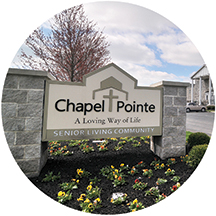Getting older means facing changes — some expected, others less so. One of the most important steps older adults can take is to plan for future health care needs before a crisis hits. Being proactive about addressing anticipated senior health care needs can provide peace of mind, reduce stress on family members, and ensure access to high-quality care when it’s needed most.
One of the best options for long-term care planning is a Continuing Care Retirement Community (CCRC), which offers a full continuum of care to meet a senior’s evolving needs over time.
Why Older Adults Should Plan Ahead for Health Care
Planning for senior care before it's needed ensures better outcomes and more choices. Older adults who plan ahead tend to experience greater satisfaction with their care, fewer emergency interventions, and lower costs overall.
Proactive planning also prevents rushed decisions during a medical emergency. It allows families to understand and honor their loved one’s preferences instead of being left to guess during a crisis. Despite a family’s best intentions and efforts, waiting too long often limits a seniors’ options; high-quality senior communities may have waitlists, and sudden declines in health can narrow the field of possibilities.
But health care planning is not only about financial planning — it’s also about choosing where and how to live. Moving to a CCRC can help older adults live independently longer and, in many cases, enjoy a better quality of life than they would in their own homes. CCRCs also help older adults avoid isolation, live safely, and easily access medical support as their needs change.
How CCRCs Support Healthy Aging Through a Full Continuum of Care
A CCRC, also known as a life plan community, offers comprehensive care on one campus, allowing residents to move seamlessly between levels of care as their needs evolve. CCRCs are designed to support seniors from active, independent living through more advanced care such as skilled nursing and memory support.
Here’s a closer look at each level of care typically provided in a CCRC.
Independent Living
This option is ideal for healthy, active seniors who want to downsize or enjoy maintenance-free living. Independent living care homes often include apartments and/or cottages. Services typically include options for:
- Housekeeping and laundry
- Meal plans or on-site dining
- Social, recreational, and wellness programs
- Transportation services
These tailored services allow seniors to live independently longer and focus on hobbies, friendships, and quality of life, knowing that on-site medical care is also available if needed.
Assisted Living/Personal Care
As needs grow, residents may move into assisted living or personal care, where they receive help with activities of daily living, such as:
- Bathing, grooming, and dressing
- Medication administration
- Mobility support
- Three nutritious meals per day
The goal of this care level is to provide enriching opportunities and enough support to help seniors maintain as much independence as possible while ensuring safety, hygiene, and comfort.
Memory Care
Designed specifically for individuals with Alzheimer’s disease or other types of dementia, memory care living units are secure and staffed by caregivers trained in dementia-related challenges. In addition to support with activities of daily living, features may include:
- Structured daily routines centered around each individual
- Cognitive engagement and memory-stimulating activities
- Specialized safety protocols
High-quality memory care helps reduce confusion, agitation, and risk of wandering, providing emotional support and peace of mind for residents and families.
Skilled Nursing Care
This level of care is appropriate for seniors with serious or complex medical needs who require 24/7 oversight by licensed nursing staff. Skilled nursing care may include:
- Chronic disease management
- Wound care
- Medication administration
- Mobility assistance to ensure residents can participate in care needs, activities, and social opportunities
At a CCRC, residents can receive this care on the same campus where they already live, avoiding disorienting moves during especially vulnerable times.
Rehabilitation Services
Short-term rehabilitation services — following a surgery, injury, or hospital stay — are often available on-site as well. Services may include:
- Physical therapy
- Occupational therapy
- Speech therapy
These services support a return to independence and help residents regain abilities without the expense and hassle of having to transfer to an outside facility.

See a CCRC Through a Resident’s Eyes
Richard Foster often tells others about his decision to move to Chapel Pointe, a CCRC in Carlisle, PA.
“I was very fortunate to be able to move in at age 63.” Richard explained. “The younger you move in here, the more you will enjoy it. Too many people are moving in at too advanced of an age with health problems, and not being able to take advantage of what Chapel Pointe provides to keep you active and healthy into your senior years. I utilize the fitness center every day, and if I want, have access to healthy meals. … I participate in just about every activity Chapel Pointe provides for independent living residents.”
When Richard isn’t joining on-campus opportunities, it’s because he’s volunteering in the local community and building connections as he walks or rides his bike through town. In fact, the location initially drew Richard to explore Chapel Pointe because it would keep him within walking distance of everything he needs and offers close access to major roads leading anywhere he wants to drive.
“I further researched Chapel Pointe, and found it was a tremendous value, as I did not want to pay for access to activities I would not be interested in. I moved in here for my own peace of mind. If I need them, all levels of care are available,” he said.
Planning for future health care needs is one of the most meaningful gifts adults can give themselves and their families. It reduces uncertainty, preserves independence, and ensures access to high-quality care. By planning ahead and exploring CCRCs early, seniors can secure a spot in a supportive environment that adapts with them — ensuring both quality of life and quality of care.

Plan for All Your Senior Health Care Needs With Chapel Pointe
Chapel Pointe is a faith-based continuing care retirement community committed to serving and enhancing the quality of life for people aged 62 and older in Central Pennsylvania. We’re honored that our greater community sees the servant heart of our nonprofit organization and consistently votes Chapel Pointe “The Best of Cumberland County.”
We offer the full spectrum of care services, including in-home care as well as on-site independent living care, personal care, memory support, skilled care, and rehabilitation services. Attend a no-pressure upcoming event to learn more!
Nestled in 8 beautifully landscaped acres in Carlisle, Pennsylvania, our welcoming campus is filled with interesting places to explore and amenities that make life easy, enjoyable, and centered on each individual. You’ll enjoy a wide variety of social brain-boosting activities and events, including movies, concerts, dinner gatherings, game nights, and church groups.
Contact us for more information about living your best life at Chapel Pointe!